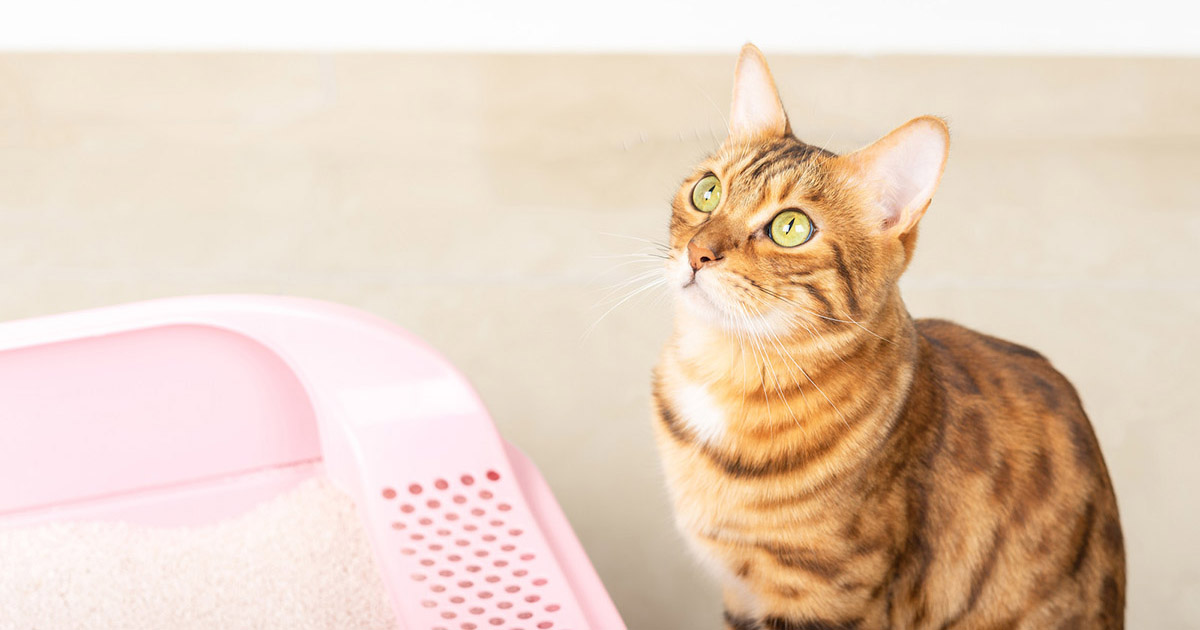Avoid Clogs and Damage: Don't Flush Cat Poop Down Your Toilet - Professional Recommendations
Avoid Clogs and Damage: Don't Flush Cat Poop Down Your Toilet - Professional Recommendations
Blog Article
Everybody has their private perception on the subject of Can You Flush Cat Poop Down The Toilet?.

Introduction
As pet cat owners, it's essential to bear in mind how we throw away our feline pals' waste. While it might seem convenient to flush cat poop down the bathroom, this practice can have harmful repercussions for both the environment and human health and wellness.
Alternatives to Flushing
Fortunately, there are safer and a lot more accountable means to deal with cat poop. Take into consideration the complying with alternatives:
1. Scoop and Dispose in Trash
One of the most typical approach of taking care of feline poop is to scoop it right into a naturally degradable bag and toss it in the trash. Make certain to use a committed litter inside story and dispose of the waste immediately.
2. Usage Biodegradable Litter
Choose naturally degradable pet cat litter made from materials such as corn or wheat. These trashes are eco-friendly and can be securely dealt with in the trash.
3. Hide in the Yard
If you have a lawn, take into consideration hiding pet cat waste in a designated location far from vegetable yards and water sources. Make certain to dig deep sufficient to avoid contamination of groundwater.
4. Set Up a Pet Waste Disposal System
Purchase a pet dog garbage disposal system particularly designed for feline waste. These systems use enzymes to break down the waste, lowering odor and ecological impact.
Wellness Risks
Along with environmental worries, purging cat waste can likewise pose health and wellness threats to human beings. Cat feces may consist of Toxoplasma gondii, a bloodsucker that can cause toxoplasmosis-- a potentially serious ailment, specifically for pregnant women and individuals with damaged immune systems.
Environmental Impact
Flushing cat poop presents harmful microorganisms and bloodsuckers into the water, posturing a considerable threat to marine ecosystems. These contaminants can negatively impact aquatic life and concession water top quality.
Final thought
Accountable animal ownership expands past supplying food and shelter-- it also entails appropriate waste administration. By refraining from purging feline poop down the toilet and going with alternate disposal methods, we can decrease our environmental impact and secure human health.
Why Can’t I Flush Cat Poop?
It Spreads a Parasite
Cats are frequently infected with a parasite called toxoplasma gondii. The parasite causes an infection called toxoplasmosis. It is usually harmless to cats. The parasite only uses cat poop as a host for its eggs. Otherwise, the cat’s immune system usually keeps the infection at low enough levels to maintain its own health. But it does not stop the develop of eggs. These eggs are tiny and surprisingly tough. They may survive for a year before they begin to grow. But that’s the problem.
Our wastewater system is not designed to deal with toxoplasmosis eggs. Instead, most eggs will flush from your toilet into sewers and wastewater management plants. After the sewage is treated for many other harmful things in it, it is typically released into local rivers, lakes, or oceans. Here, the toxoplasmosis eggs can find new hosts, including starfish, crabs, otters, and many other wildlife. For many, this is a significant risk to their health. Toxoplasmosis can also end up infecting water sources that are important for agriculture, which means our deer, pigs, and sheep can get infected too.
Is There Risk to Humans?
There can be a risk to human life from flushing cat poop down the toilet. If you do so, the parasites from your cat’s poop can end up in shellfish, game animals, or livestock. If this meat is then served raw or undercooked, the people who eat it can get sick.
In fact, according to the CDC, 40 million people in the United States are infected with toxoplasma gondii. They get it from exposure to infected seafood, or from some kind of cat poop contamination, like drinking from a stream that is contaminated or touching anything that has come into contact with cat poop. That includes just cleaning a cat litter box.
Most people who get infected with these parasites will not develop any symptoms. However, for pregnant women or for those with compromised immune systems, the parasite can cause severe health problems.
How to Handle Cat Poop
The best way to handle cat poop is actually to clean the box more often. The eggs that the parasite sheds will not become active until one to five days after the cat poops. That means that if you clean daily, you’re much less likely to come into direct contact with infectious eggs.
That said, always dispose of cat poop in the garbage and not down the toilet. Wash your hands before and after you clean the litter box, and bring the bag of poop right outside to your garbage bins.
https://trenchlesssolutionsusa.com/why-cant-i-flush-cat-poop/

I have been very eager about Don’t flush cat feces down the toilet and I'm hoping you liked my blog posting. Do you know about somebody who is curious about the topic? Please feel free to promote it. Many thanks for taking the time to read it.
Call Today Report this page